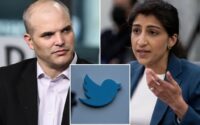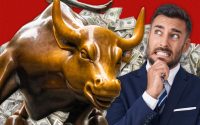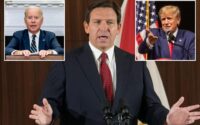H&M pulls Justin Bieber merchandise after singer called it ‘trash’
Who’s “Sorry” now?
H&M will remove all Justin Bieber merchandise from its shelves after the Canadian pop star took to Instagram and denounced the collection as “trash” while insisting he didn’t approve it.
Bieber posted two stories to his Instagram account Monday that were critical of the Sweden-based multinational clothing retailer.
“I didn’t approve any of the merch collection that they put up at H&M…all without my permission and approval,” the “Sorry” crooner wrote to his more than 270 million Instagram followers.
Bieber authored another Instagram post denouncing the “H&M merch” as “trash” while encouraging fans to shun the products.
Bieber, who hawks his own brand of merchandise on his website, was specifically referring to a line of clothing, phone accessories and tote bags that bear his likeness and song lyrics.


The company denied Bieber’s accusation that the pop star didn’t approve the merchandise before it was offered for sale, telling People magazine that “as with all other licensed products and partnerships, H&M followed proper approval procedures.”
On Wednesday, H&M had scrubbed its website of all Bieber-inspired products “out of respect for the collaboration and Justin Bieber,” and said it would cease selling the merchandise, according to Forbes.
Shares of H&M rose by more than 3.6% as of 2:20 p.m. Wednesday.
Bieber’s star power would be a boon to retail chains, but the singer started his own in-house fashion brand, Drew House, three years ago.

Last year, Drew House generated more than $1 million in sales, according to Vogue Business.
Earlier this year, Canadian coffee giant Tim Hortons reported a 10.3% increase in Bieber-inspired sales for the fourth quarter of 2021.
The chain’s parent company, Restaurant Brands International, credited Bieber’s line of donuts for boosting sales, which were lagging due to the effects of coronavirus pandemic lockdowns, according to CNN.


The Bieber-endorsed line of donuts, “Timbiebs Timbits,” proved to be “one of the more successful traffic-driving initiatives in recent memory and outperformed our internal expectations,” according to RBI CEO Jose Cil.


